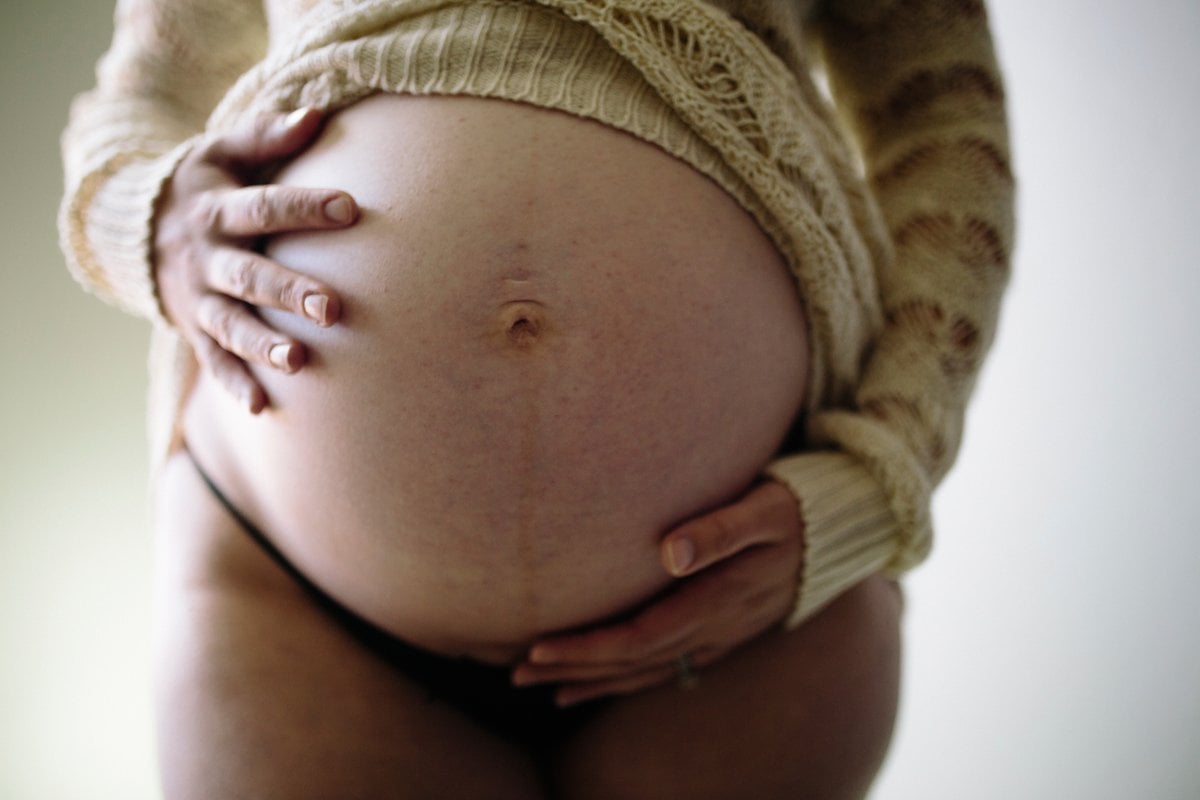
Late in my third trimester, I walked into a furniture store and held the door for the woman coming in behind me.
"Oh, I should be holding this for you! How far along are you?" she asked.
"35 weeks," I said. "Almost there!"
"Well, you look incredible," she said, eyes darting up and down my body. "So... compact!"
"Thank you," I sighed, accidentally letting the door slam behind us.
Watch: Your questions about childbirth, answered by mums and non-mums. Post continues below.
As she walked off, she continued to eye my pregnant shape from different angles, smiling and shaking her head as if to say, "Yep, still looking good from this angle too, well done you!"
This wasn’t an isolated incident.
I’d been getting it a lot since I had been well enough to leave the house.
I know this sounds like a lovely thing to hear from strangers and I know these people are well-meaning. Who doesn’t want to be told they look great, right?


Top Comments